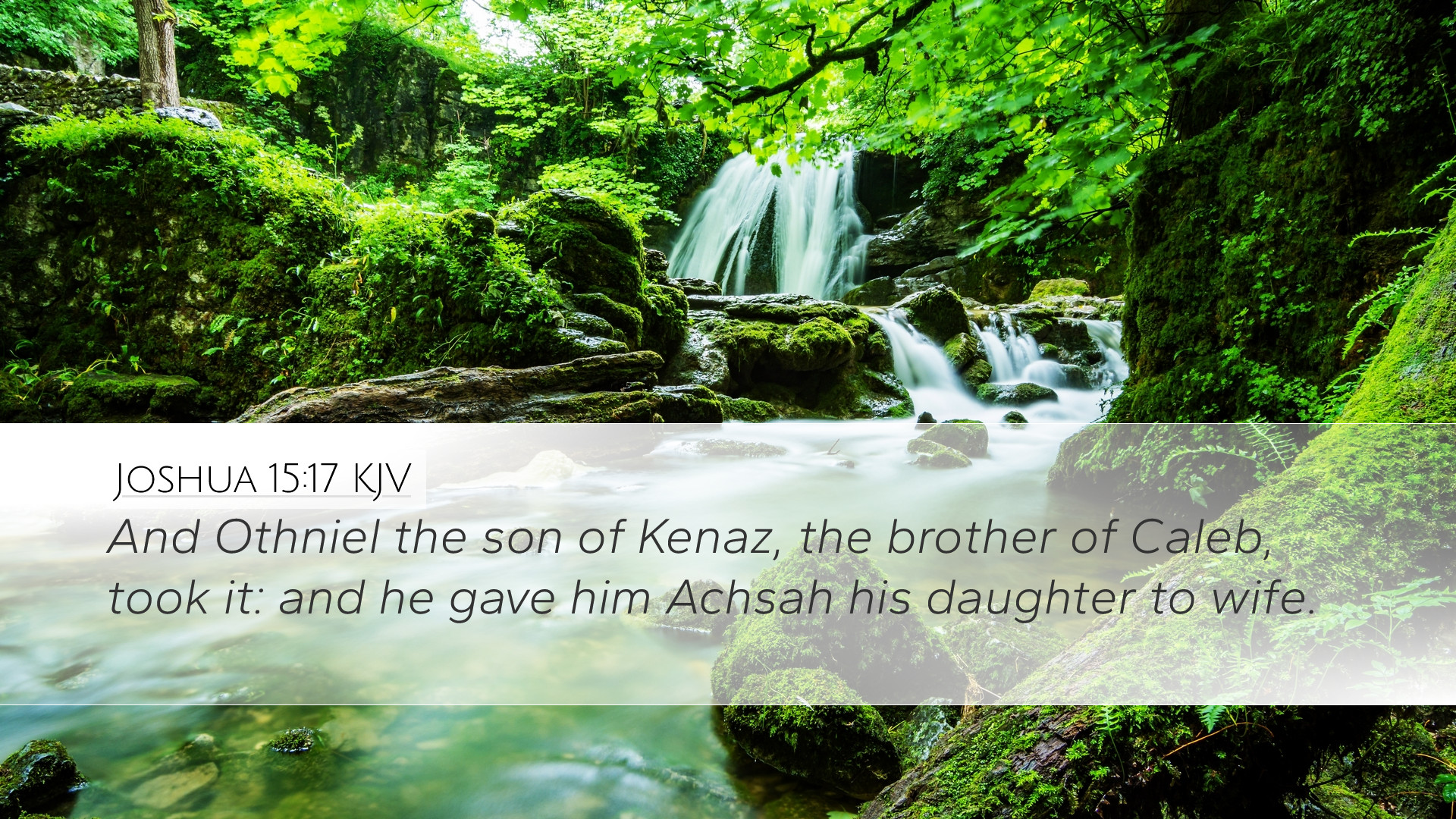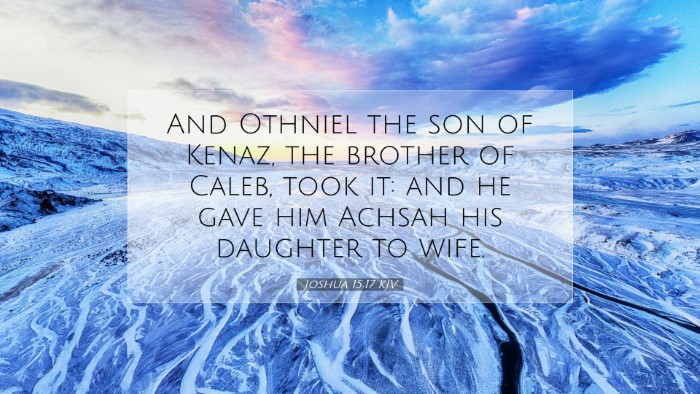Commentary on Joshua 15:17
Verse: "And Othniel the son of Kenaz, the brother of Caleb, took it: and he gave him Achsah his daughter to wife."
Introduction
The verse from Joshua 15:17 encapsulates a pivotal moment concerning the inheritance in the land of Canaan, focusing on Othniel's valor and the ensuing marital alliance. This commentary synthesizes insights from public domain sources, providing depth for pastors, students, and theologians.
The Significance of Othniel
Othniel as a Conqueror
Othniel, recognized as a military leader, stands out because of the familial ties to Caleb, one of the most faithful spies sent to scout Canaan. According to Matthew Henry, Othniel's successful conquest signifies not only personal valor but reflects the broader theme of faithfulness and God's promise to grant victory to those who trust in Him.
A Reflection on Courage and Faith
Like many biblical figures, Othniel exemplifies the attributes of courage and faith. Albert Barnes emphasizes that Othniel's readiness to take on the challenge of capturing cities stems from a deep-seated belief in God's support. His character serves as a lesson for believers today, demonstrating that faith in action can lead to divine blessings.
The Marriage Alliance
The Context of Achsah
Othniel's reward for his military prowess was not merely land but also the hand of Achsah in marriage. Adam Clarke describes Achsah as both a pivot in the narrative and a powerful female figure in the patriarchal society of her day. This event symbolizes the integration of familial loyalty and conquest, establishing a model for future generations regarding the importance of alliances through marriage.
Marriage as a Covenant
The choice to give Achsah to Othniel can be seen not only as a reward but a testament to the covenantal nature of marriage in Biblical times, rooted in both duty and affection. As Matthew Henry explains, biblical marriages often reflect deeper earthly and spiritual connections, revealing God's will through relational dynamics.
The Role of Caleb
Caleb's Influence
Caleb, as the elder who approved of Othniel's actions, underscores the role of the elder generation in nurturing the next. Albert Barnes notes this paternal influence and legacy, depicting how Caleb's foundational work in the past significantly shapes the community's future. As a faithful servant, Caleb supports the younger generation's initiatives, encouraging believers to actively mentor and guide those who follow.
Thematic Reflections
- Faith in Action: The narrative is a reminder of how faith translates into tangible actions, ultimately leading to God's promises.
- Legacy and Mentorship: The relationship between Caleb and Othniel emphasizes the importance of mentorship in spiritual and communal life.
- The Role of Women: Achsah's presence in the text serves to highlight the significant roles women played, both in familial and societal contexts.
Conclusion
In Joshua 15:17, the intertwining of conquest and marriage sets a stage that resonates with timeless truths about faith, legacy, and covenant. The insights gathered from public domain commentaries accentuate the depth of this passage, urging pastors, students, and theologians to ponder the implications on contemporary faith practice. As they reflect on Othniel’s bravery and Achsah’s significance, they are invited to consider how these narratives shape our understanding of faith and community today.


